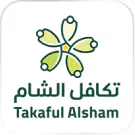
Empower Your Team, Amplify Your Impact
ICS delivers tailored training for humanitarian, public, and private sectors, focusing on practical, bilingual learning in complex MENA environments. Using flexible formats—workshops, online courses, and a dedicated platform—we strengthen local capacity and long-term impact.
Integrated ICT, Advanced Analytics & Custom Software Solutions for NGOs & Private Sectors
ICS provides AI-powered analytics and custom ICT tools, including ERP systems and software, to help NGOs and businesses streamline operations, enhance efficiency, and make data-driven decisions with secure, scalable technology.
Insights That Drive Change
ICS conducts needs assessments and impact evaluations, delivering actionable insights to help NGOs and institutions make strategic, evidence-based decisions that strengthen mission outcomes.
Measure Impact, Drive Change
Since 2019, ICS’s MEAL division has led long-term monitoring and evaluations for top donors like USAID, ECHO, and UN agencies, offering rigorous, independent services to track impact and guide program improvement.



Leveraging AI to optimize humanitarian outcomes, improve decision-making, and enhance operational efficiency.

Modernizing humanitarian aid with cutting-edge technology and digital solutions that adapt to evolving needs.

Empowering informed decisions through smart data collection, real-time analytics, and robust monitoring systems.

Designing solutions that empower marginalised communities and promote sustainable, equitable growth across regions.

ICS specialises in localising solutions, ensuring that capacity-building programs are culturally relevant, effective, and sustainable.

Developing flexible, scalable solutions that are quickly deployed and tailored to address urgent humanitarian needs.

Creating climate-resilient and eco-friendly interventions that promote long-term stability and growth in vulnerable communities.

Building strategic partnerships with global and local stakeholders to drive transformative impact in humanitarian work.

















































































We work with different partners and clients across the globe to provide organizations, communities & NGOs with innovative products and solutions.







